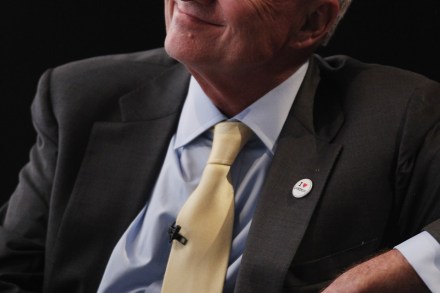A warning for Osborne and his economic agenda
Why did Moody’s downgrade Britain to AAA with a negative outlook, but leave other countries on AAA? One crucial factor is the scale of our debt increase: 60 per cent over the parliament. You won’t find it mentioned much today. The Chancellor is talking about austerity, helped by Balls who talks about his harsh deep cuts. Osborne today swears to keep ‘dealing with the debt’ — but his definition of ‘dealing with debt’ would even make an Italian blush: As Balls said on the radio this morning, the plan isn’t working. But Balls’ narrative — that Osborne is cutting harsh and deep — is untrue, as Moody’s knows. Osborne’s real












